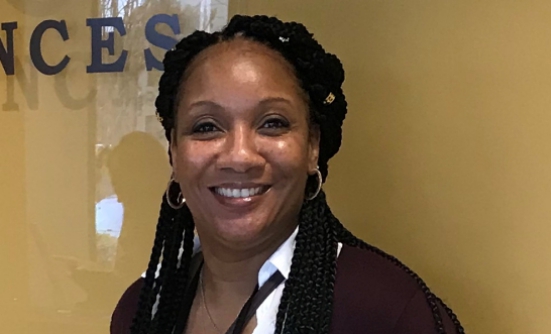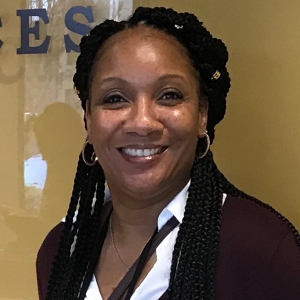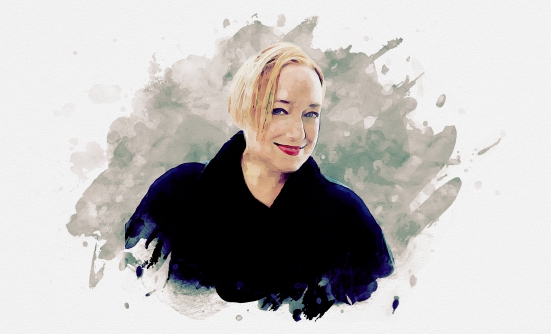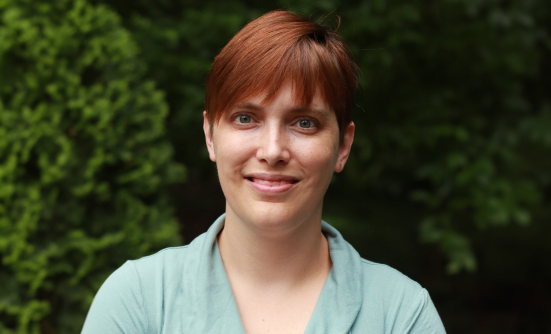One of my favorite quotes by author and pastor Charles R. Swindoll is, “Life is 10% what happens to you and 90% how you react to it.” These words kept me going after my diagnosis of stage IIIB colorectal cancer in 2011.
I smile when I look back on that year, not because I battled this ugly thing called cancer, but because I drove my kids half-crazy with the inspirational quotes in giant letters that I posted throughout the house.
I was blindsided by my diagnosis. As a military reservist, my health had always been important to me. I exercised regularly, ate the right foods, and received a clean bill of health every year from my doctor.
The majority of people who are diagnosed with colorectal cancer are older than age 60, yet I was only 45 when doctors told me cancer had been growing inside me for almost 15 years. I was determined to face this news with positivity. I underwent surgery, and, after 3 months of chemotherapy, my troubles seemed to be over. The cancer was gone.
What I didn’t know was that I had Lynch syndrome, the most common cause of inherited colorectal cancer in people under age 50.
Lynch Syndrome
About 1 million people are estimated to have Lynch syndrome in the United States, but only about 5% of them are aware of their status. Caused by a hereditary genetic mutation, Lynch syndrome is inherited from a family member and increases the person’s risk of having 1 of more than 12 types of cancer, especially colorectal cancer and endometrial (or uterine) cancer.
People who have any of these cancers often have a family history of cancer, and they run the risk of passing that inherited genetic mutation on to their children. People who inherit this mutation also tend to have cancer at an earlier age than the general population, even if they are not diagnosed until much later, as in my case.
Other than my mother dying from brain cancer, in 2011, I had no warning signs that Lynch syndrome was running in my family. However, shortly after my own battle with cancer, my brother was also diagnosed with colorectal cancer. Then my aunt revealed that my grandfather had died from colorectal cancer at age 38.
Based on this new information, in 2016 my oncologist recommended that I undergo genetic testing. I had been cancer-free for almost 5 years, when I learned about my gene mutation.
The more I researched Lynch syndrome and learned that it was linked to a 60% to 80% risk of having endometrial cancer, the more I knew that I couldn’t sit idly by and wait for cancer to strike again.
Healthcare professionals generally recommend that patients with Lynch syndrome have their ovaries and uterus removed by age 35, and I was already 15 years past that deadline. I have 2 daughters and had finished growing my family, so the choice was clear.
Cancer, Again
In 2016, I made the decision to have a total hysterectomy, and this was not a moment too soon. When the surgeons biopsied my uterus, they found that I already had stage I endometrial cancer. Fortunately, I did not need further treatment, because the cancer was in an early stage and was removed before it had the opportunity to spread.
Since then, I have also been diagnosed with skin cancer on my back. As a person of color, I never would have suspected that what looked like a tiny pimple could be hiding a 2-inch tumor underneath my skin.
Knowing that I have Lynch syndrome now gives me an advantage when it comes to cancer prevention. In my world, no abnormality goes unnoticed. For patients with Lynch syndrome, it is normal to always be looking over our shoulder, waiting for when the next cancer will show up.
My life depends on my staying one step ahead of the next diagnosis, which is why I follow an intensive screening regimen to detect cancers early. I see my primary care physician, oncologist, dermatologist, gynecologist, and dentist at least once every 6 months. It may be a lot, but it’s worth the effort to be able to diagnose cancer early, when it can still be cured.
Spotting a Lump
My experience with cancer has inspired me to work with several groups to advance cancer research and advocate for patients. I also hope my story can be the spark that ignites others to get tested.
One organization that has been extremely valuable in my journey is Facing Our Risk of Cancer Empowered (FORCE), which promotes hereditary cancer research and supports people diagnosed with Lynch syndrome and other genetic mutations linked to cancer. The annual conference of FORCE provides a rare opportunity to come together with hundreds of cancer survivors and previvors (those with a hereditary genetic mutation) who are facing the same genetic challenges.
Another important resource is AliveAndKickn, which is focused on promoting research, education, and screening for Lynch syndrome.
Is Genetic Testing for You?
If any member of your family has had colorectal or uterine cancer, please be sure to talk with your doctor or with a genetic counselor about having a test for Lynch syndrome.
By arming yourself with knowledge, you can take power over your health, whether that means catching cancer early, or preventing it altogether. Remember that life is 10% what happens to you and 90% how you react to it.
Patient Resources
AliveAndKickn
http://www.aliveandkickn.org
FORCE: Facing Our Risk of Cancer
http://www.facingourrisk.org/index.php
Lynch Syndrome International
https://lynchcancers.com
















